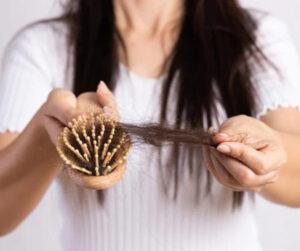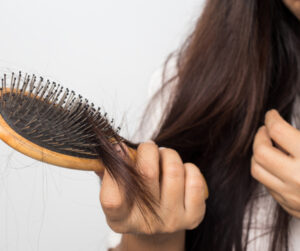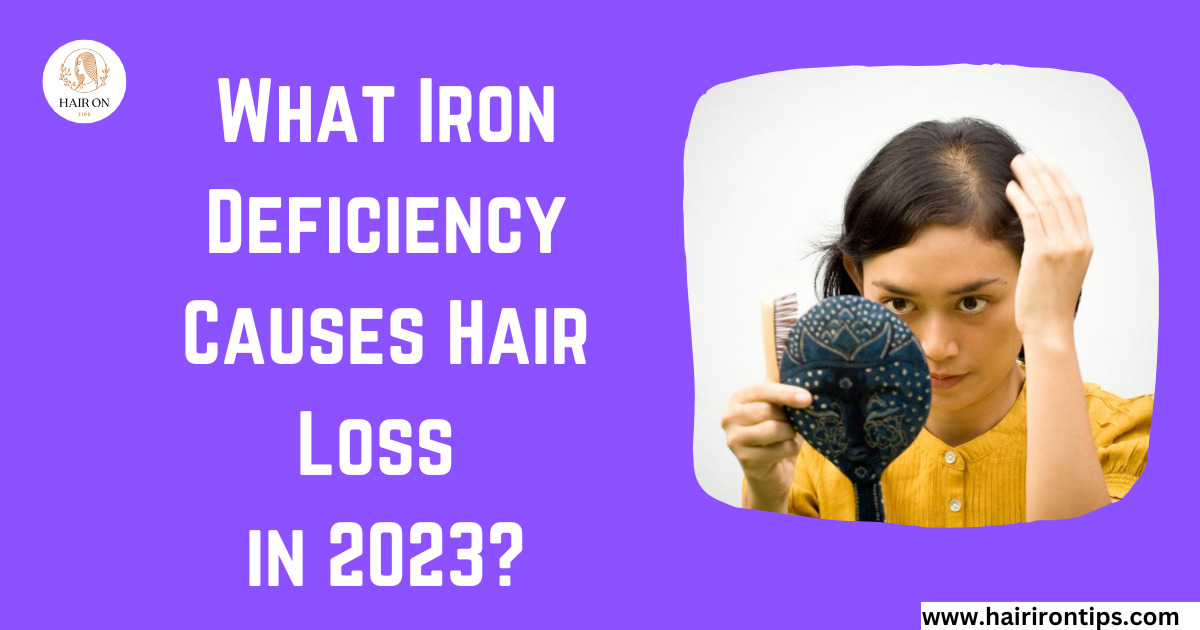Iron deficiency, or anemia, can cause hair loss. Hair loss due to iron deficiency is typically diffuse, affecting the entire scalp rather than specific areas. It can also cause other symptoms, such as fatigue, weakness, and pale skin.
Iron is an essential nutrient that plays a crucial role in producing red blood cells, which are responsible for carrying oxygen to the body’s tissues, including the hair follicles. When the body doesn’t have enough iron, it can’t produce enough red blood cells, leading to anemia and a decrease in the amount of oxygen reaching the hair follicles. This can cause the hair to become thin and weak and may eventually lead to hair loss.
Iron deficiency is often caused by a lack of iron in the diet or by an inability to absorb iron from the diet due to certain medical conditions, such as inflammatory bowel disease or celiac disease. It can also be caused by heavy menstrual periods, pregnancy, or blood loss from any cause.
If you think you may be experiencing hair loss due to iron deficiency, you must consult a healthcare provider to determine the cause and get the appropriate treatment. Treatment may involve taking iron supplements and making dietary changes to increase your intake of iron-rich foods, such as red meat, poultry, seafood, beans, and leafy green vegetables.

Can an iron deficiency cause hair loss?
Yes, iron deficiency, or anemia, can cause hair loss. Hair loss due to iron deficiency is typically diffuse, affecting the entire scalp rather than specific areas. It can also cause other symptoms, such as fatigue, weakness, and pale skin.
Iron is an essential nutrient that plays a crucial role in producing red blood cells responsible for carrying oxygen to the body’s tissues, including the hair follicles. When the body doesn’t have enough iron, it can’t produce enough red blood cells, leading to anemia and a decrease in the amount of oxygen reaching the hair follicles. This can cause the hair to become thin and weak and may eventually lead to hair loss.
Iron deficiency is often caused by a lack of iron in the diet or by an inability to absorb iron from the diet due to certain medical conditions, such as inflammatory bowel disease or celiac disease. It can also be caused by heavy menstrual periods, pregnancy, or blood loss from any cause.
If you think you may be experiencing hair loss due to iron deficiency, you must speak with a healthcare provider to determine the cause and get the appropriate treatment. Treatment may involve taking iron supplements and making dietary changes to increase your intake of iron-rich foods, such as red meat, poultry, seafood, beans, and leafy green vegetables.

What is iron deficiency?
Iron deficiency is a condition in which the body doesn’t have enough iron. Iron is an essential nutrient that plays a crucial role in producing red blood cells responsible for carrying oxygen to the body’s tissues. When the body doesn’t have enough iron, it can’t produce enough red blood cells, leading to anemia.
Symptoms of iron deficiency can include fatigue, weakness, pale skin, shortness of breath, and rapid heartbeat. In addition, iron deficiency can cause hair loss, difficulty concentrating and decreased immune system function.
Iron deficiency is often caused by a lack of iron in the diet or by an inability to absorb iron from the diet due to certain medical conditions, such as inflammatory bowel disease or celiac disease. It can also be caused by heavy menstrual periods, pregnancy, or blood loss from any cause.

If you think you may have iron deficiency, it’s important to speak with a healthcare provider to determine the cause and get the appropriate treatment. Treatment may involve taking iron supplements and making dietary changes to increase your intake of iron-rich foods, such as red meat, poultry, seafood, beans, and leafy green vegetables.
